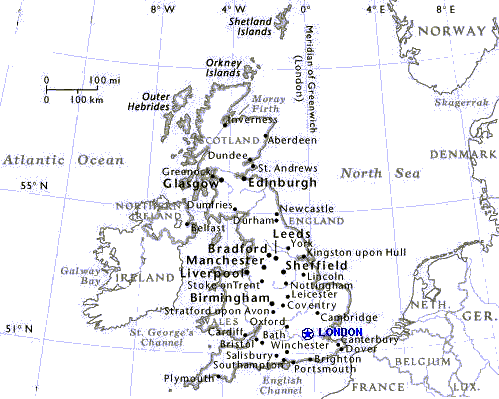Area
Population
Religion
Language
Literacy
Life Exp.
59,364,000
Sir Francis Drake's defeat of the Spanish Armada in 1588 confirmed England's naval strength. During the 18th century, techniques of mass production gave birth in the Midlands to the industrial revolution. Although losing many American colonies in the second half of the 18th century, Britain's realm grew in Africa, the Caribbean, Asia, and the Mediterranean. As late as 1945 colonial Britons toasted king and country in an empire that spanned the globe. By the century's end, more than 40 former colonies had gained independence, most joining the Commonwealth of Nations. Of the 16 remaining possessions, the islands of Guernsey and Jersey are closest to home.
In 1979 newly elected Prime Minister Margaret Thatcher set out to reduce inflation and regain economic competitiveness. In the 1980s manufacturing productivity soared, much of the public sector was privatized, and trade unions were weakened. As the British economy worsened, criticism of Thatcher mounted; in 1990 she resigned and was succeeded by her Conservative Party colleague John Major. A general election in 1992 retained Major as prime minister, though his Conservatives walked a tightrope in the House of Commons.
The Labour Party's 1997 majority was the largest of any British political party since 1935, ending 18 years of Tory rule. When elected at 43, current prime minister Tony Blair was the youngest British prime minister since 1812. The U.K., which saw an economic slowdown in 1998 yet has one of the largest economies in the EU, has chosen not to participate in the euro currency for now.
